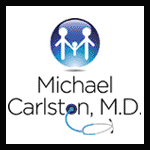
Firmly established conventional guidelines on blood pressure and salt are finally eroding. It’s about time. For decades I’ve guided my patients along a different path, telling them that I am not concerned by their blood pressure in my office and that they need salt to live. Both of these blood pressure-related opinions have gotten me in hot water with other docs. It’s time for another victory dance.
You tell me. If you are worried, anxious, stressed or fearful what happens to your blood pressure? Do you feel as calm and relaxed in the doctor’s office as you feel at home? Is there some “body-wisdom”, a biologically wonderful reason why your blood pressure and pulse rate should increase when you are stressed?
The answers are obvious. Well, the answers are obvious to you and I, but they have not been to conventional medicine until now. Just about anyone’s blood pressure will be unusually high in the doctor’s office. Our blood pressure and heart rate rises with stress, so that we can respond to the stress. Yes, that was much more functional for humans when the “stress” was an attack from a saber tooth tiger than it is now, when the stressor is finding a parking space or some conflict at work.
Taking this one more step, the simple question is: “Do you think that checking your blood pressure in your doctor’s office is a decent way to determine if you have high blood pressure?”
The organization that creates the guidelines for medical screenings for disease the United States Preventive Services Task Force – USPSTF has now achieved a level of common sense equal to your own. They made an official (although still preliminary) declaration that patients should not be diagnosed with high blood pressure on the basis of in-office measurements. Of course, in line also with your common sense, we should not ignore it when a patient has dangerously high blood pressure, even in our offices.
Do check your blood pressure yourself. Make sure you are relaxed before you check it. If it is high (140 if you are young,160 if you aren’t, 130 if you have diabetes or kidney disease) talk to a doctor or other health professional about it.
Do you remember Mahatma Gandhi, the grandfather of nonviolent resistance? One of his greatest strategic triumphs was when he organized a march to the sea to make salt from seawater. That might sound like a pleasant school outing, except for two facts. One was that the British government (at the time the colonial rulers of India) banned anyone from making salt without paying a tax. The other fact, the one most relevant to this column and the same reason Gandhi created the event, is that salt is essential to life.
Since forever in the medical world (50+ years), the theory that cutting out salt would eliminate blood pressure problems and save lives has ruled the roost. Eating salt made a person thirsty and swollen as she/he drank water to dilute the salt. It made so much sense and there was so little money to be made proving it or disproving it, that the theory really wasn’t carefully appraised by looking at people over time. Furthermore, the advice was to stop adding salt to your home cooked meals, ignoring the reality that processed food was the biggest source of dietary salt.
Who listened to the “cut out the salt” advice? The answer is: people who were already the most conscious of their health. The same people who were already exercising, eating well and choosing not to smoke cigarettes. In other words, the people who cut their salt were the ones who didn’t need to, even if cutting out salt might be a good idea for some other folk.
What happened then? Well, those people often already have low blood pressure because of their excellent health habits. In traditional cultures and healing systems it is well-known that older people usually tend to have low blood pressure due to aging. We’ve been learning scientifically that a lot of that is due to the loss of muscle mass that accompanies aging. So, for those people, when they cut out salt, their already low blood pressure drops further. That makes them weak, dizzy and even more likely to have a serious, too often fatal, fall. Many, many times I have had to urge patients to take more salt.
Now the impact of cutting salt has been studied. It turns out that many people who do cut salt are more likely to die for any reason, including from heart troubles. In fact, for many people with high blood pressure, cutting out salt raises their blood pressure. There are some individuals for whom lowering salt might be a good idea, but that is generally not true.
One reason I encourage people to consider my recommendations when they diverge from conventional recommendations is that I am almost always eventually proven to be right. This is not arrogance (even if it sounds like it), but is simply a statement of the facts. Again and again, with the passage of time, my dissenting viewpoints prove to be correct. Simple common sense and critical thinking are the reasons I am right.
You don’t have to be a doctor to use your common sense and critically evaluate what you read. In fact, there is ample evidence that too many physicians don’t think critically enough.
Photograph courtesy RLC Artistry
